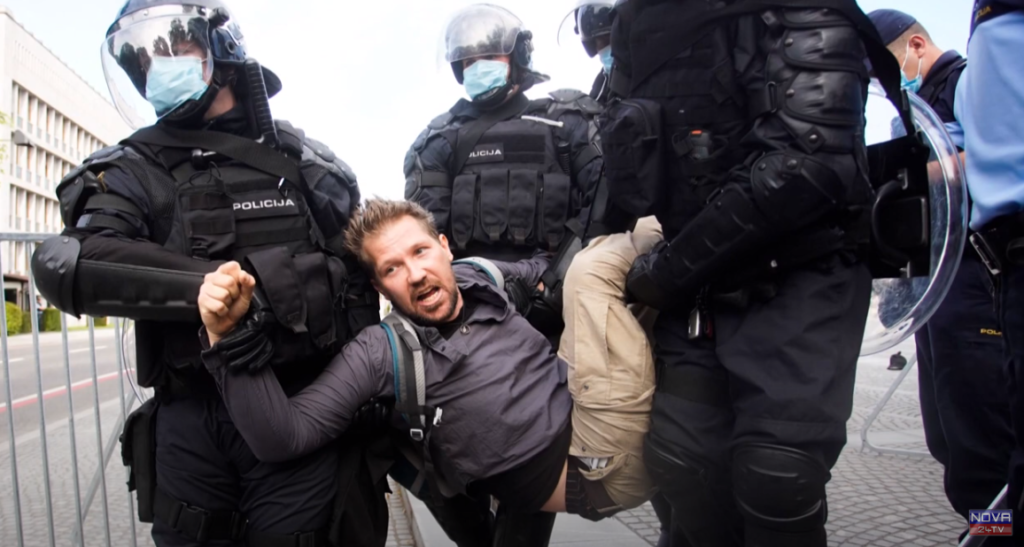The Specialised State Prosecutor’s Office found that the police officers’ conduct during the violent protests that happened during the term of the previous government was proportionate and that there was no evidence of criminal offences. Former Minister of the Interior, Aleš Hojs, therefore believes that such conduct during the pandemic was perfectly legal, but at the same time, he believes that the decision of the State Prosecutor’s Office is an indication of the bias of the Slovenian courts. Former Director-General of the Police, Anton Olaj, pointed out that the same findings were already made by the internal audit of the police during the term of the third government of Janez Janša.
The Specialised State Prosecutor’s Office recently announced that it had found no trace of criminal offences in the conduct of police officers during the violent protests that happened during the term of former government of Janez Janša. In light of this news, which has not received much publicity, we asked former Minister of the Interior, Aleš Hojs, and former Director-General of the Police, Anton Olaj, for their opinion on the matter.
Aleš Hojs: the decision itself says it all
Aleš Hojs, former minister and current vice-president of the Slovenian Democratic Party (Slovenska demokratska stranka – SDS), believes that the decision itself is very clear, but at the same time, the findings are the same as those that Anton Olaj has been highlighting for several years and which have also been found during the internal audit of the police. “This decision is also yet another sign that the actions and conduct of the police officers were completely lawful,” Hojs added. He then pointed out that mistakes are and will always be made everywhere, but in this case, they were extremely minor, which is acceptable. He also wondered, “How is it possible that the current government is paying back fines and penalties when they have no valid legal basis for doing so?”

Dr Olaj congratulated all police officers
Former Director-General of the Police, Anton Olaj, begins by saying: “I have always pointed out that the results of the current government’s audit are professionally questionable because, in this same case, there was also an extraordinary internal audit of the police carried out by five police inspectors who, unlike the Ministry of the Interior, are impartial and professional. No major breaches were found at that time. The police made these findings public at the time.” He added that the government’s decision to include the ministry in carrying out the audit was proof that the control was politically motivated and had to meet the expectations of the Prime Minister and then-Minister of the Interior, Tatjana Bobnar, in order to justify the personnel purges.

Dr Olaj also noted that he is disappointed that the process of reaching a decision took two whole years, as the authorities left all police officers, who were working according to the law, in limbo. Olaj once again congratulated all police officers for successfully ensuring protection and safety at the unreported violent protests and highlighted the fact that there were not many injured protesters, contrary to the ruling party’s misleading claims. “The actions of the police were justified and correct. And the police were successful in their protection,” he also noted.
“As for the accusations that we gave heavy fines, they are not true. We gave significantly more warnings than penalties; we were tolerant and subtle. The actions of trying to make it seem to the public that everything was wrong are unfair to the police officers. It is unethical and immoral,” the former Director-General explained in a statement.
In conclusion, he also added that “the police are no longer taking action now, we have seen this in the cases of the parking garage rallies, where the police officers have retreated, or in more plastic terms, fled. We have a serious problem, inequality before the law, which I have also seen in my own work in the police. Such unusual actions are the result of policies, and police officers are also afraid of lawsuits, and so prefer not to take action.”
T. R.


